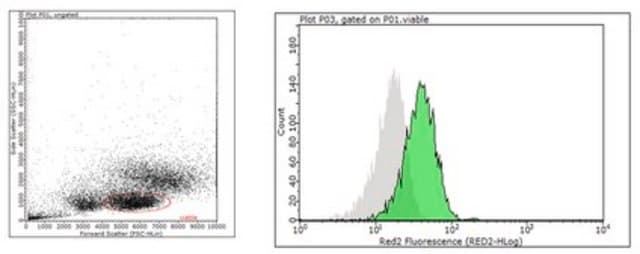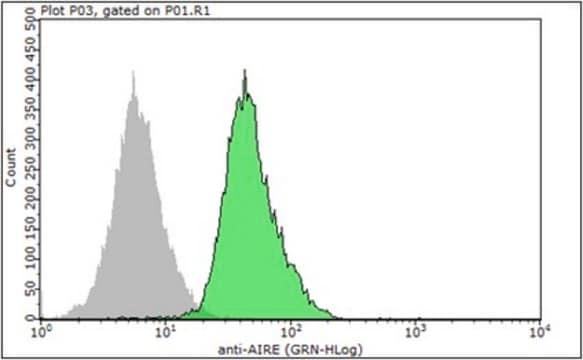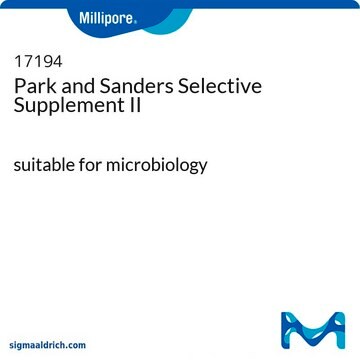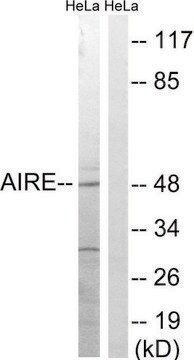09-456
Anti-AIRE Antibody
Upstate®, from rabbit
Sinonimo/i:
APECED protein, Autoimmune polyendocrinopathy candidiasis ectodermal dystrophy
protein, autoimmune polyendocrinopathy candidiasis ectodermal dystrophy 2
autoimmune regulator
, autoimmune regulator (APECED protein), autoimmune
About This Item
Prodotti consigliati
Origine biologica
rabbit
Livello qualitativo
Forma dell’anticorpo
affinity purified immunoglobulin
Tipo di anticorpo
primary antibodies
Clone
polyclonal
Purificato mediante
affinity chromatography
Reattività contro le specie
mouse
Produttore/marchio commerciale
Upstate®
tecniche
western blot: suitable
Isotipo
IgG
N° accesso NCBI
N° accesso UniProt
Condizioni di spedizione
wet ice
modifica post-traduzionali bersaglio
unmodified
Informazioni sul gene
mouse ... Aire(11634)
Categorie correlate
Descrizione generale
Specificità
Immunogeno
Applicazioni
Western blot: 1:1000
Inflammation & Immunology
Developmental Signaling
Transcription Factors
RNA Binding Protein (RBP)
Qualità
Western Blot:
A 1:1000 dilution of this lot detected AIRE in murine thymus lysate
Descrizione del bersaglio
Stato fisico
Stoccaggio e stabilità
Risultati analitici
Murine thymus tissue lysate
Note legali
Esclusione di responsabilità
Non trovi il prodotto giusto?
Prova il nostro Motore di ricerca dei prodotti.
Codice della classe di stoccaggio
10 - Combustible liquids
Classe di pericolosità dell'acqua (WGK)
WGK 2
Punto d’infiammabilità (°F)
Not applicable
Punto d’infiammabilità (°C)
Not applicable
Certificati d'analisi (COA)
Cerca il Certificati d'analisi (COA) digitando il numero di lotto/batch corrispondente. I numeri di lotto o di batch sono stampati sull'etichetta dei prodotti dopo la parola ‘Lotto’ o ‘Batch’.
Possiedi già questo prodotto?
I documenti relativi ai prodotti acquistati recentemente sono disponibili nell’Archivio dei documenti.
Il team dei nostri ricercatori vanta grande esperienza in tutte le aree della ricerca quali Life Science, scienza dei materiali, sintesi chimica, cromatografia, discipline analitiche, ecc..
Contatta l'Assistenza Tecnica.








